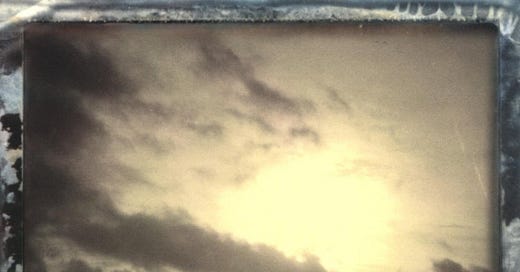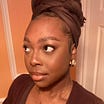'The Waves' and Its Tenacity to Break Every Rock In Your Life
We begin a celebration of Virginia Woolf with this discussion of one of her most amazing novels.
Editor’s Note: In honor of Women’s History Month we’re going to begin discussing the extraordinary literary master Virginia Woolf and especially her most mystical, experimental novel The Waves. God of the Desert Books welcomes a new contributor, Sarah J. Onafuye. Check out her lovely Substack Letters from the Train and I hope you enjoy her debut contribution which I sincerely hope will be the first of many reflections on culture, literature, life, and whatever other subjects catch her fancy.
The Waves by Virginia Woolf is one of those timeless works that formulates to create a most needed picture of love and relationships in every sense. What sparks this essay about the book is a similar interest in the canonical work revealed in a conversation I had with a fellow writer (editor and publisher Mr.
) about our differing literary journeys and ultimately where it has gotten us today. After reading my essay concerning the book, you won’t be surprised as to how it was raised as beloved common ground between two very different people.Bernard, Neville, Louis, Jinny, Rhoda and Susan. Each character tells us a separate story/outlook on life which trickles down into one fatal commonality: the desire to belong. Isn’t this what we often situate friendship as? A formulated relationship that shows to outsiders that we through our social tactics have been chosen by somebody and in the configuration (be it emotional or political) we have proven to show that we now stand for something. They are a dynamic group, the Big Six (this is what I like to call them), and I so appreciated them for it.
Anyone who reads The Waves will find no trouble attaching themselves to either one of the characters and will also feel as if Woolf holds a constant mirror in your face whenever he or she arises for their timely turn in the novella. The Waves, however, is far from just a pretty picture inside a pretty frame as sadly sometimes just as in real life we don’t always like what is looking back at us in the reflective glass.
Overall, the novel shows us that there is no love without problems. And how these problems can settle forever if not properly addressed or exposed. Louis and Ginny and Rhoda’s strange love-triangle are evident when we observe them letting their awkward juvenile love temper over into an indecent proposal of hostility, self-loathing and infantry behaviours mishandled.
It reminds me of when childhood traumas aren’t addressed, which many of us can relate to because now we are a melting pot of confusion and desperation for answers trapped in a body who cannot do a single thing about it but grow and move on whether we are with it or not. Louis and Rhoda entangle themselves for a short while, but never get to experience the true fruits of what they had to offer together and live a life away, as opposed to one constantly turning inwards. Sometimes, life just isn’t as straightforward as we would hope.
Bernard was for me, my reflection. I understood him immediately because he looked like me, but in the same retrospect I was terrified because, well, he looked like me. The mirror was being held up and loomed over my head with every page that would turn. He was the one in the group who offered a necessary sanctum for us as readers to run to when the rest of the group were fumbling about into who they were and wanted to be which was just giving them grief and ridicule from others around them.
Bernard preferred to dress himself in simplicity and pure experience, even if at times his loquacious nature didn’t always display this. He says something that will forever stick with me:
“‘Had I been born,’ said Bernard, ‘not knowing that one word follows another I might have been, who knows, perhaps anything.’”
After reading this I would have happily shut up the whole book. But yet, I knew this was only the onset to other transformational stuff Woolf had yet to disclose to me through the lives and loves of the Big Six. It reminded me of the political box we’ve put ourselves into through labels and even just the doctrinfication of language. Woman following mother, sex symbol, tempter. Man following breadwinner, owner, abuser. It taught me to not even acknowledge the words that supposedly follow who I’ve been born as.
Woolf tells me I am writing this story as it goes along and I will pick the words to follow from what I find suits me, not the world. The stagnant rocks of labels and prejudices because of my anatomy, race, lifestyle, beliefs, etc. were now suddenly shifting through the torrent of Woolf’s waves. I was being carried away in a storm and spat onto a land I so desired and knew could be all mine if I would just let it and not enable society, like a ravenous eagle, to swoop in and equip it.
The Waves is experimental and vivacious. Don’t take my word for it. Read it for yourself and fall in love with who you transform from the first page to the last. How she managed to get into the head of the Big Six and then my own decades later is a mystery that I will continue to unravel as every day goes by. She did this because she remained herself and wrote with what she had to offer in the depths of her creative being. Is this not what we should propose as the essence of life itself?







Thank you Dave and GOTD Books for giving me this platform to share my thoughts! And thank you to Mrs Woolf for writing her truth!! I encourage everyone to read it and fall in love with her way of life :)